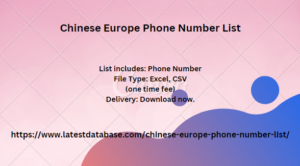Post by account_disabled on Mar 5, 2024 23:41:42 GMT -5
Senders Control How Information Shared via Email is Used. Recently Published Patent Numbers Describe an Outline of a Set of Technologies That Will Transform the Use of Email and Security Systems in the Near Future. Among the New Features Introduced by This Technology, Senders Can Control and or Restrict Recipients From Forwarding Specific Emails They Receive. You Can Also Set an Expiry Date for Emails You Send, Establishing an Expiration Date by Which the Message Will Be Completely Illegible. But Perhaps the Most Interesting Option, Especially for Corporate Security Administrators, is the Possibility to Activate the "Self-destruct" Option for the Final Self-destruction of the Email in the Recipient's Inbox, or to Perform It via Remote Control Destroy. To Understand How This Patent Works and the Strategic Potential of This New Service for the Company, Let's Pretend That We Are a Company That Specializes in Electronic Devices.
Product Manager of a Multinational Company. New Flagship Device and We Sent a Confidential Email With the Final Design of the Device to Request a Quote From the Supplier. Utilizing the Option Provided by the Developed Patent, We Can Self-destruct Emails and All Copies Made From the Provider's Inbox When the Provider Chinese Europe Phone Number List Responds to a Possible Meeting Subpoena, Thus Preventing the Provider From Saving Copies. Unauthorized Access to Messages Containing Sent Information. Screenshot on the Other Hand, if the Provider Decides to Forward an Email to a Third Party Without Consent, the System Can Immediately Notify the Sender to Forward the Confidential Message and Immediately Execute Its Own Actions by Remotely Controlling the Message and All Its Copies. Destroy. Messages, Responses, and Forwarding as Security Measures to Protect Confidential Information and Sender Privacy. Another.

On the Other Hand, as Officials Explained, the System Does Not Work on All Email Platforms. In Order for the System to Operate as Described in the Example Above, the Recipient Should Operate With Software That is Compatible With the Technology to Ensure That the Same System Sends and Reads Confidential Messages in a Secure and Controlled Environment. However, Security Systems Will Likely Be Implemented in the Vast Majority of Email Service Platforms Currently Operating in the Future to Establish a Level of Trust and Confidentiality Among Those Companies or Organizations That Frequently Use Email as Their Primary Messaging Tool. However, It is Emphasized That This Proprietary System is Not Intended to Replace Current Email Systems. In Fact, He Thinks That Perhaps Using a Regular Email Account Isn't the Most Appropriate Way to Share Confidential Information Because There's No Control Over Where the Message is Being Sent and Who the Recipient is Sharing the Information With.
